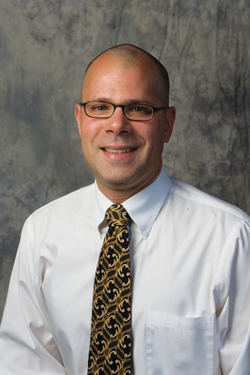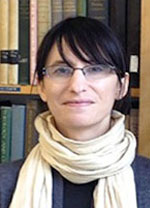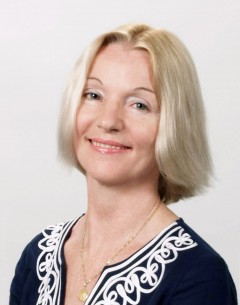Professor Knepper’s Spring 2105 Philosophy of Religion course looked at discourses of ineffability in Jewish mysticism and Muslim mysticism (as well as a little Zen Buddhism). In their final papers students were asked to describe and compare several of these discourses, then both to explain their commonalities and differences and to evaluate the general claim that ultimate beings and/or experiences are ineffable. Below are some of their final papers:
04/30/2015: Concluding Comparisons
Tim Knepper and Leah Kalmanson,
Directors of The Comparison Project, Drake University professors of philosophy and religion.
April 30, 7 p.m., Sussman Theater, Olmsted Center
In the final event of its 2013-2015 series on “religion beyond words,” The Comparison Project’s directors, Tim Knepper and Leah Kalmanson, will compare over the programming of the last two years, raising philosophical questions of meaning, value, and truth about ineffability in comparative religious perspective. Knepper and Kalmanson will explore the diversities of ineffability in nine religious traditions as well as the arts and literature, focusing on the distinctive means by which humans speak about things they say cannot be spoken. Ultimately, Knepper and Kalmanson will also assess the ends toward which ineffability has been deployed in the practice and study of religion.
Timothy Knepper is associate professor of philosophy and religion at Drake University. He teaches and publishes in the philosophy of religion, comparative religion, late ancient Neoplatonism, and mystical discourse. He is the author of books on the future of the philosophy of religion (The Ends of Philosophy of Religion, Palgrave, 2013) and the sixth-century Christian mystic known as Pseudo-Dionysius the Areopagite (Negating Negation, Wipf & Stock, 2014).
Leah Kalmanson is Assistant Professor of Philosophy and Religion at Drake University. She researches and teaches in the fields of Asian and comparative philosophy, continental philosophy, and postcolonial theory. She has published the co-edited volumes Confucianism in Context (SUNY 2010), Levinas and Asian Thought (Duquesne 2013), and Buddhist Responses to Globalization (Lexington 2014).
*Note about Kalmanson’s presentation: Kalmanson is indebted to works by Tomoko Masuzawa and Jason Ānanda Josephson (listed below) for her discussion of the history of the term “religion” in Europe. Her quotations in the Hakuseki-Sidotti exchange are taken (at times with slight modification) from the Josephson source.
- Josephson, Jason Ānanda. The Invention of Religion in Japan. Chicago: University of Chicago Press, 2012.
- Masuzawa, Tomoko. The Invention of World Religions: Or, How European Universalism Was Preserved in the Language of Pluralism. Chicago: University of Chicago Press, 2005.
04/16/2015: Love Is to Renounce Naming the Beloved: Muslim Mystic al-Rabi’a and Her Teaching of the Ineffable
 Tamara Albertini,
Tamara Albertini,
Professor of Philosophy, Director of the Undergraduate Certificate of Islamic Studies, University of Hawai’i at Manoa
April 16, 7 p.m., Sussman Theater, Olmsted Center
The female Muslim mystic Rabi’a al-‘Adawiyya (d. 801) is widely considered one of the most influential mystics of Sufism, as she was primarily responsible for redirecting the spirit of early Sufism away from the path of austere asceticism and toward the path of divine love. Dr. Albertini’s illustrated lecture will begin by introducing Sufism in general and Rabi’a in particular, after which she will explore Rabi’a’s mystical poetry with respect to her struggle to express an ineffable love for Allah.
Dr. Tamara Albertini was raised in North Africa where she learned Arabic and attended Qur’anic classes. Later, she obtained a Lic.phil. from the University of Basel (Switzerland) and a Dr.phil. from the Ludwig-Maximilians-Universität in Munich (Germany) in Islamic and Renaissance studies. Her many publications aim at reintroducing the vigor and vision of Muslim intellectual contributions from the classical period. Since 9/11, she speaks widely on Islamic Fundamentalism, Women and Islam, and Islamic Law.
02/26/2015: Kabbalah, Language, and Transcendental Mysteries

Steven Katz,
Alvin J. and Shirley Slater Chair of Jewish and Holocaust Studies, Boston University
Feb. 26, 7 p.m., Sussman Theater, Olmsted Center
The Jewish mystical tradition, like all mystical traditions, has had to deal with the issue of language and the communication of mystical experience. In responding to this basic issue, Jewish mystics did not emphasize ineffability. Instead, they answered the conceptual matters raised by the challenge of language by creating a theology that drew on the material in, and the interpretation of, the Hebrew Bible.
Dr. Katz serves on the Academic Committee of the U.S. Holocaust Memorial Museum, chairs the Holocaust Commission of the Memorial Foundation for Jewish Culture, and serves as Academic Adviser to the 31 countries that make up the International Holocaust Remembrance Alliance. He has published numerous works on the Holocaust and Jewish philosophy as well as five seminal books on comparative mysticism all from Oxford University Press.
Listen to audio of Katz’s lecture:





